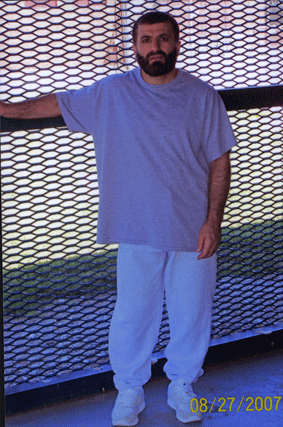|
Kurdish Culture
|
Kurdish Proverbs
by Yassin Aref
To know a nation you have to read its history, study its culture and understand its situation. One of the goals of my web site is to help you to appreciate Kurdistan – the largest “stateless” nation in the world. We have been denied and ignored for a long time. We are still struggling to find friends and people who will understand us. My hope is that this site will help build understanding. I will be pleased if people learn something good and helpful for their lives from my words. It will mean that I am still living and able to serve people even though I am in prison.
Kurdish history is very old and full of lessons. Neanderthals existed in our Kurdish mountains. We are the descendants of Noah after the ark came to rest on Mount Ararat. We believe that we Kurds are Abraham’s nation.
The hardship in Kurdish life comes from two sources: The biggest source of hardship is our political situation which has denied the Kurds their own nation. The Kurds do not have a country and in many cases they are not allowed even to speak their own language or wear national clothing. We have been in constant conflict with neighboring cultures for centuries. The other source of hardship is the very nature of our land. Kurdistan is mostly mountainous terrain and cold weather, and it is so isolated that it hard to get any of modern society’s needs. Kurdistan lacks good roads, electricity, telephones, and mail service. Most villages do not have access to good schools, or clinics or hospitals. All of this has affected Kurdish life as shown in their poems and proverbs.
Kurds have a deep love of freedom and liberty, similar in some ways to the Palestinian’s longing for a country of their own. The Palestinians get support many other Arab and Muslim countries and their struggles are mention daily in the media across the world. There have been thousands of international conferences about them, while it is rare to hear anything about the problems of the Kurds.
In the beginning when most people were illiterate and there was no TV or radio or newspapers, people passed on their experiences to each other with poems and proverbs and small stories and jokes. Kurdish culture is rich in such wisdom. I hope I will be able to give you a picture of it in this web site.
A proverb may be: wisdom from a wise man; poetry from a poet; sayings from a tribal leader; teachings from a preacher; advice from and advisor; instruction from parents to children. Today proverbs do not play the role that they did centuries ago. At that time, especially for nations like the Kurds, proverbs formed a statement of basic and absolute rights like a religious text. They were laws to help people solve problems; they were scientific knowledge to help people learn; they were guides for the leaders; and they were art and entertainment for the long winter nights, even if today some of it appears to be completely nonsensical.
We Kurds believe that we faced genocide not only of the people but also of our culture. Parts of our history have been stolen from us. Many incidents are hidden from the people, or have been interpreted incompletely and unfairly. But with all that, much has been saved in the heart and minds of those who survived the genocide. Kurds wrote their culture of the rocks of their mountains and caves. They kept it in their hearts, and on the skin or their sheep, and the wood of their trees, and they taught it to their children. I will share as much as I can with you.
At the present I still live in my grand father’s style of life – living in a cave on a “mountain” in Terre Haute. I have no phone or printer and I cannot go to the internet our any library sources to refresh my memory. I am in America, and I live like my grand father only because I am in a special prison unit which severely restricts my contact with the outside world. I use most of my few opportunities for outside contact to check on my children and help them remember me. In Kurdish culture, the one thing that cannot be permitted to happen and cannot be accepted under any circumstance is that someone should forget who his father is. This is one of the reasons why, after centuries of genocide, we Kurds still exist as a people. We know who our fathers are and where we come from.
In my present situation, cut off from all resources and forced to rely on my memory, it will be hard for me to organize my proverbial culture by incidents from history. But I want to mention as many proverbs as I remember, with a little explanation to help you understand. Please feel free to give me any advice.
Updated
April 11, 2008
This site is maintained by Lynne Jackson of Jackson's Computer Services |
